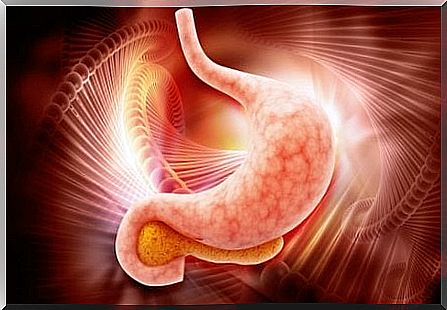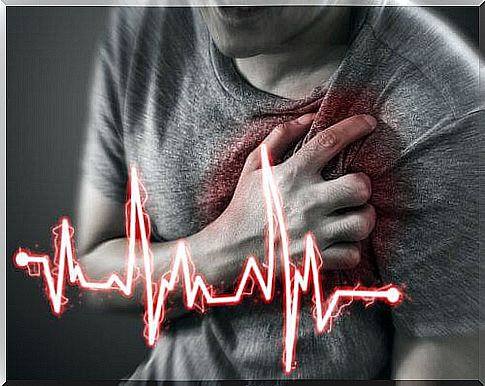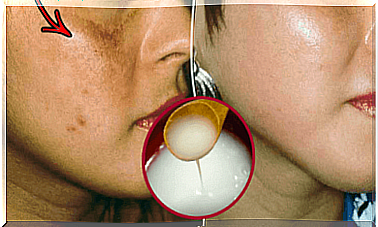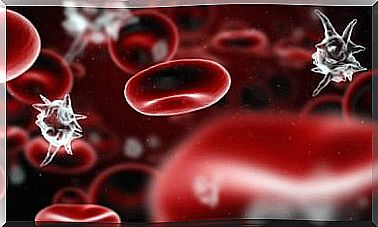Epigastralgia: Irritating Abdominal Pain

Epigastralgia can be a warning of other problems. Therefore, one should never let this constant pain in the abdomen and navel area go worse.
What kind of pain does epigastralgia cause
Epigastralgia is not just a common stomach pain, it is a condition that affects several areas of the abdomen.
Patients with this type of indigestion experience pain in the epigastrium area. The person then has the feeling that the whole abdomen is being pinched by a rope, and this is a depressing and burning sensation that results in nausea and great discomfort.
Although in most situations this pain is simply caused by poor digestion, epigastralgia may be associated with another series of disorders or diseases that require an accurate diagnosis.
Now then we want to tell you more about this disease and its symptoms, so keep reading! This way, you are aware of what happens in your stomach if epigastralgia ever happens to you.
What exactly is epigastralgia?

Epigastralgia is simply a pain located in the epigastrium , and this is the area that extends from the upper abdomen to the navel.
As you already know, there are many organs and structures in that area, and so it is difficult to immediately identify what is causing such pain.
The pain may occur to the patient on a continuous and daily basis, but it may also be sudden. The symptoms are as follows:
- severe pain
- nausea
- vomiting
- burning sensation in the stomach
- feeling full in the stomach, even if the person has eaten very little
- abdominal cramps
- cold sweat
- flatulence
- episodes of diarrhea or constipation
What causes this disease?

Epigastralgia caused by inflammation of the esophagus
Esophagitis (i.e. inflammation of the esophagus) and diaphragm are two common causes of this problem, but the most common are poor digestion.
Oesophagitis is a phenomenon that occurs as a result of esophageal acid reflux, and this is a disease that should be treated as soon as possible.
Such a hernia is a common phenomenon in people over 50 years of age. It causes heartburn as well as problems swallowing, as well as indigestion and bad breath.
Stomach problems
Epigastralgia can originate in the stomach. One possible cause is a stomach ulcer. The pain occurs in autumn and winter and becomes more intense at night. Usually the problem is alleviated when a person eats.
On the other hand, as we have already said, in many cases this problem is due to the fact that the person has an acute gastric ulcer. This can be a contagious, poisonous, or food-borne problem.
In this case, the pain is very severe, and usually accompanied by vomiting and great discomfort.
Epigastralgia caused by digestive problems
One important thing is that sometimes this pain in the upper abdomen originates from a person having inflammation of the appendix.
This is why it is important that if you feel severe pain in your upper abdomen, it is important not to hesitate to see a doctor and go to the emergency room if the suffering is severe.
In addition, it should be mentioned that Crohn’s disease occurs in the early stages, usually with this pain in the epigastrium .
When epigastralgia is on the left side of the abdomen, there may be a colon problem. (Such disorders may include, for example, diverticles, tumors, and the like.) In addition, irritable bowel syndrome is one possible cause of epigastralgia. In this case, it is common for pain to occur in the context of a sudden and flatulence.
Problems with the pancreas
Acute pancreatitis usually originates from this pain.
It is important to be aware of these types of symptoms located in the upper abdomen. This is especially true if you also experience vomiting or bloating.
Be careful, as this can also be a sign of a heart problem!

This information is important, of course!
An acute heart attack in the heart muscle can cause epigastralgia, and therefore there is pain in the upper abdomen.
In addition, this type of symptom is very common in diabetics just before a person gets a heart attack.
The pain may be sudden, depressing, and with vomiting. Whatever the situation, and to get rid of doubts, it’s never a bad thing to go to the emergency room so I can get a diagnosis as soon as the discomfort begins.
How can the problems associated with this disease be prevented?
As you now know, this is just one of the symptoms associated with many types of diseases.
Regardless of what all the possible illnesses may be underlying (poor digestion, stomach ulcer, irritable bowel, heart problems, etc.), they have one thing in common that can help reduce the likelihood that you will get the diseases we mention.
This factor is that diet matters. If the diet is good, the likelihood of getting or worsening these diseases can be reduced.
So incorporate the following habits into your daily routine if you want to prevent these disorders from developing:
- Reduce the amount of fat.
- Choose alkaline foods.
- Eat smaller meals and more often during your day. This way, your digestion will work in a way that doesn’t cause overwork.
- Eat fresh fruits and vegetables, and avoid products that are high in additives or foods that are high in chemicals.
- Reduce your intake of sugar and salt.
- Be careful with medications such as ibuprofen and other non-steroidal anti-inflammatory drugs.

Finally, we remind you not to hesitate to contact your doctor if you have any problems, pain, or changes related to your digestive function.
Preventing problems and taking care of yourself is tantamount to better health and well-being!









